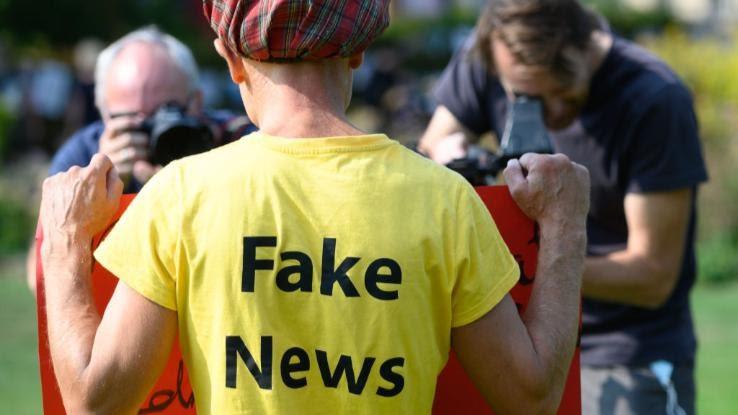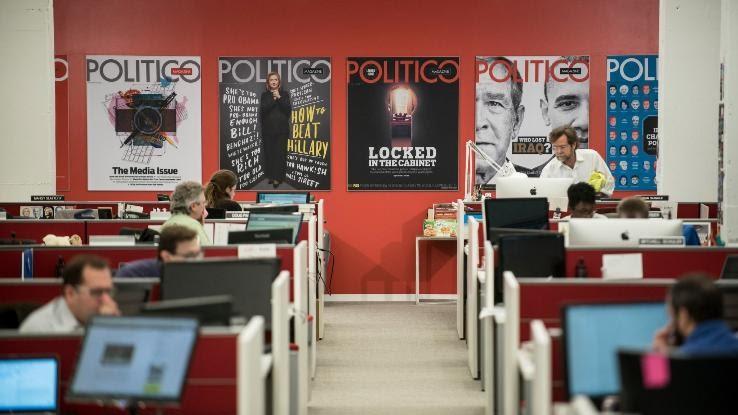Is Politico a Reliable News Source?

In the era of “fake news” and mass misinformation, finding a reliable news source can prove tricky at times. In fact, new sources like Politico, a political journalism company, have created entire sub-categories dedicated to analyzing and warning of the dangers of fake news stories. Without a doubt, fake news can pose a serious threat to both journalism and democracy, especially when high-profile public figures fling the term around whenever an otherwise reliable news source doesn’t support their agenda. With this in mind, we’re taking a look at what makes a news source trustworthy — and assessing how Politico stacks up.
Biased News vs. Fake News
Sometimes it feels almost impossible to find a completely unbiased news source, especially when it comes to political coverage. That said, just because a news story leans to one side of the aisle, that doesn’t necessarily invalidate the reliability of the entire story. So, what exactly is fake news then? According to Dictionary.com, it’s “false news stories, often of a sensational nature, created to be widely shared or distributed for the purpose of generating revenue, or promoting or discrediting a public figure, political movement, company, etc.”

Whether you’re looking to check sources or particular claims, visiting reputable fact-checking sites, such as PolitiFact, can be a great way to stay informed. When sifting through news sources in particular, websites like Media Bias Fact Check can be helpful. The site boasts a slide scale of ratings for 3500+ media sources, which have been scored on reliability from “very low” to “very high.” Additionally, the site identifies if (and how far) each news source tends to lean when it comes to political ideology.
However, it is important to keep in mind that a political slant doesn’t necessarily undermine the truth. While almost all major news sources, on both sides of the aisle, could be accused of letting their slant seep in a bit from time to time, that doesn’t immediately discredit the outlet altogether.
How to Spot Fake News
So when does a news source cross the line into fake news territory? Generally speaking, when a source or story prioritizes promoting a particular opinion, ideology or belief, instead of focusing on the reporting of evidence-backed facts, it’s crossing that line.

Breitbart News, for instance, is a prime example of a source that’s become so radicalized that classifying it as “news” isn’t accurate at all. With a consistent record of reporting stories based in conspiracy theories and speculation, Breitbart has earned a reputation for being unreliable and harmful.
While some sources are fairly easy to identify as fake news, others can be a bit less obvious. That’s why sites like Media Bias Fact Check use a set of criteria in order to generate reliability rankings. These considerations can also come in handy when you’re judging a site or article on your own.
Be on the lookout for the following:
- Wording Bias: Does the source have a tendency to use words that steer the reader’s emotions and logic in the direction of a biased conclusion? Does the headline clearly and accurately convey what the story is about?
- Reliable Sourcing: Where does the source get the facts it reports? Are they backed up by well-sourced evidence?
- Perspective: Does the source tend to present both sides of every story in a well-rounded fashion — or merely the one that best backs a predetermined agenda?
- Political Leaning: How apparent is the source’s collective political view in their content? Do their stories tend to be shaped in a way that champions a particular political party while demonizing the other?
Politico’s Background
Another solid way to size up a source’s credibility? Check into who the founders are and what the source’s mission statement says. For example, Politico was founded in 2007 by John F. Harris and Jim VandeHei, both former Washington Post journalists. VandeHei left Politico in 2016 to co-found (and act as CEO of) another media group called Axios. Currently, Politico is overseen by editor-in-chief Matthew Kaminski.

Based in Virginia, Politico is a dominant political news source and distributes content via the Politico newspaper, magazines, online, over the radio and through podcasts. Much of its coverage revolves around Washington D.C.’s political activity, including the goings ons of Congress, the president and lobbyists. Politico also publishes a wide variety of op-eds, which tend to center around matters of national importance or well-sourced political analysis. According to the source’s vision statement, “Politico strives to be the dominant source for politics and policy in power centers across every continent where access to reliable information, non-partisan journalism, and real-time tools creates, informs and engages a global citizenry.”
How Reliable is Politico?
So, what’s the consensus on Politico? Media Bias Fact Check gave the popular source a “high credibility” rating, due to its reliable reporting coverage and clean fact-check record. Ad Fontes Media, an online static media bias chart, also placed Politico among the most reliable news resources based on its research and methodology. As far as bias goes, Politico does tend to lean slightly to the left, but not to the extent of other big-name outlets like MSNBC or CNN, making it a fairly balanced source of news.

Broadly speaking, a good way to determine the reliability of a news source’s information is to first ask whether its content tends to center more on fact-based reporting or opinion-based analysis. Additionally, you should consider how transparent the source in question is about the difference between the two approaches. Politico, for example, openly admits to publishing both fact-based coverage and opinion pieces. Additionally, Politico clearly demarcates its opinion pieces, as opposed to lesser publications, which might print opinion-based articles as fact.





